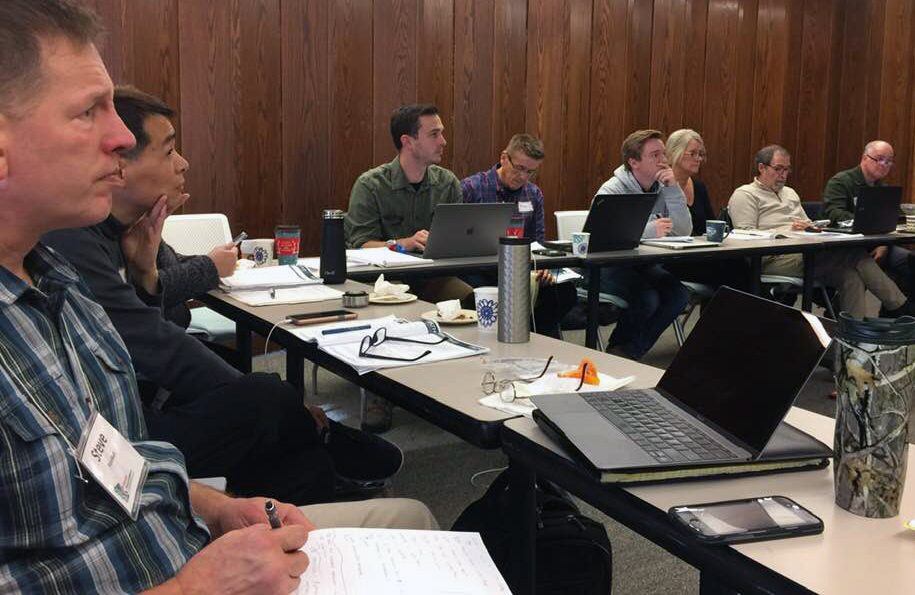
Incubator: 14 innovative start-up projects in the works

Church leaders learning about the best practices in launching a new service, site or congregation at the Incubator training recently held in Minneapolis. Photos courtesy of Cathy Townley's Facebook page.
Rev. Ben Ingebretson, Dakotas-Minnesota director of new church development, and 14 church leaders gathered in Minneapolis for training called, “New Place for New People: Startup Incubator.”
“The Incubator is about helping leaders get smart early. It is about learning best practices for innovative start-up projects before they take on a project,” says Ingebretson. “With 50% of America believing they are Christian but not regularly attending church there is an amazing opportunity before us if we will be smart innovators.”
The training is all about reaching new people, accelerating the growth rate for new congregations in the conference and creating a culture of multiplication. The Dakotas Conference is on an intentional journey toward increasing the number of vital congregations effective in making and equipping new disciples of Jesus Christ for the transformation of the world. A multiplication culture is being created to expand our footprint — a multiplication mindset and practices that lead to reaching new people, as well as helping with strategic projects, such as starting new worship services, or launching a new worship site.

Ingebretson is working to accelerate that growth rate of the Dakotas Conference to 3 percent. The growth generally recognized as a rate that allows the conference to hold steady in membership and worship attendance or even to grow slightly. There are about 250 churches within the Dakotas Conference. So annually increasing by 3 percent would translate to starting roughly ten new congregations each year.
A new congregation doesn’t necessarily translate to a new chartered church. A congregation that starts a second service or a second site, a group of congregations that work together to start a new congregation, and a church planter launching a new start all would count toward this acceleration goal.
“It’s an achievable goal,” said Ingebretson. Many other denominations are planting at rates of 3 percent or higher, and Ingebretson himself once helped the Reformed Church in America—which was comprised of 1,000 individual congregations—to plant 248 churches in 10 years. “It’s very do-able,” he said.
The leaders who participated in the week-long training mapped out plans for 14 innovative projects. Ingebretson says, “There are now 14 leaders who are less likely to make missteps in the execution of their emerging dreams. They leave with a plan penciled out that reflects best practice wisdom.”
Plans are underway to have another Incubator training in the spring of 2019.

